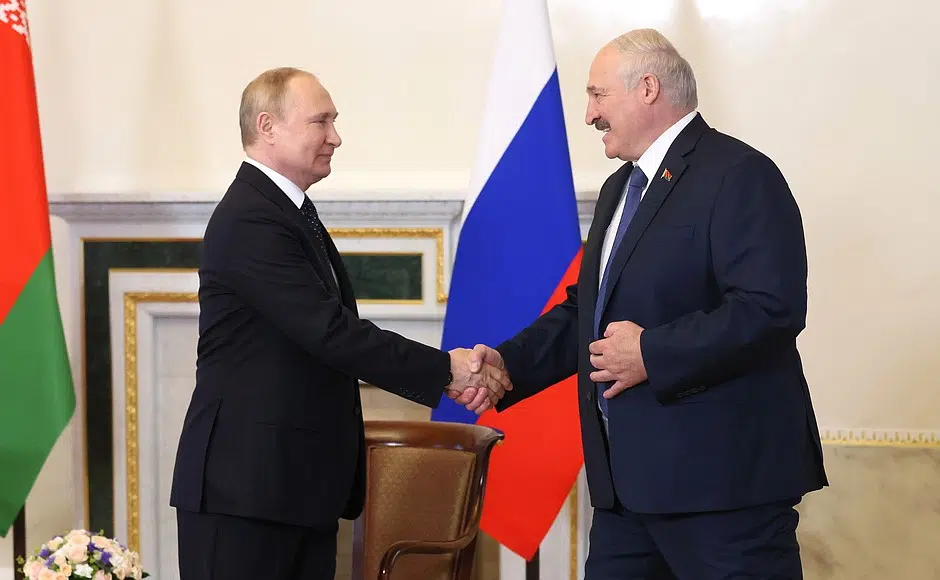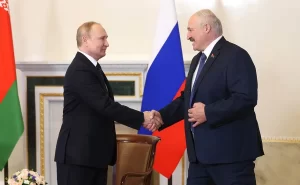

At their meeting on June 25, Russian President Vladimir Putin and the President of Belarus, Alexander Lukashenko, discussed the deployment of Russian non-strategic nuclear weapons in Belarus, a move that VCDNP Senior Fellow Dr. Nikolai Sokov called a “new and potentially dangerous development in the ever-worsening security situation in Europe” in his latest piece published in the Bulletin of Atomic Scientists. The article analyses the joint announcement made by the Russian and Belarusian leaders about the potential sharing arrangement that could include the deployment of short-range Iskander missiles in Belarus and the conversion of Belarusian aircraft to carry nuclear weapons.
Dr. Sokov noted that this decision represented a major turning point in Russian nuclear policy given its long-standing criticism of NATO nuclear sharing arrangements, which the Russian-Belarusian agreement appears to mirror. If that deal is finalized (this would require transfer of Russian nuclear weapons to Belarus, which has not been announced yet), it would signal a new stage in the military stand-off between Russia and NATO. In the foreseeable future, NATO-Russia relations will be almost exclusively confined to mutual deterrence and will become more crisis-prone than any time since the early 1960s.

